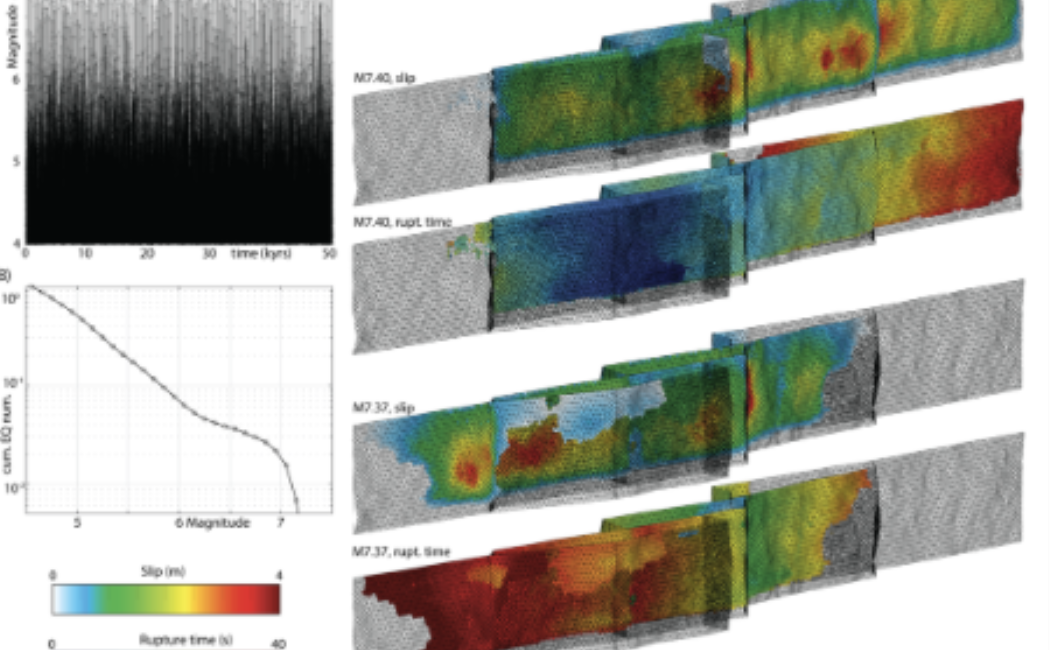


20 April, 2023
"Recently, we published MCQsim - our own multi-cycle earthquake rupture simulator, publicly available via GitHub.
Multi-cycle earthquake simulators are computer models that create extensive earthquake catalogs for predefined, complex fault systems. Fundamentally, they are based on elastic rebound theory, with approximations of long-term gradual strain accumulation (i.e., interseismic phase) and short-term abrupt strain release (i.e., frictional breakdown and elastic interaction in coseismic phase, earthquakes) to describe the earthquake cycle.
MCQsim, hence, is a computational framework to investigate the earthquake rupture process and its effect on earthquake probability. Creating long catalogs along predefined fault systems further provides the means to assign probabilities to “all” possible rupture scenarios that may occur along a simulated fault system. MCQsim therefore provides the means to establish physics-based seismic hazard assessment.
Our recent publication in Bull. Seismol. Soc. Am. is just a first step. We are looking forward to community participation and guidance for further code development and improvement.
The image shows an example catalog (50,000 years long) for a simplified model of the Gulf of Aqaba fault system. Also shown are two example earthquakes from that catalog. We are currently working on parameter tuning to perform large-scale rupture simulations for this fault system to facilitate SHA."